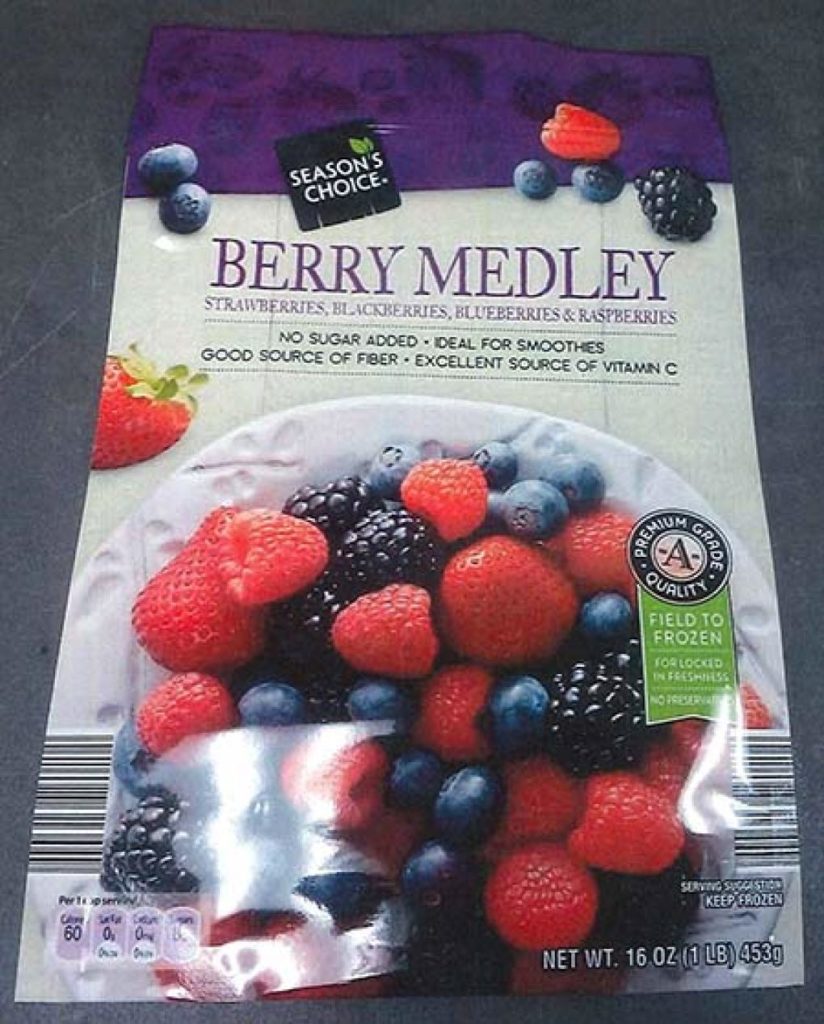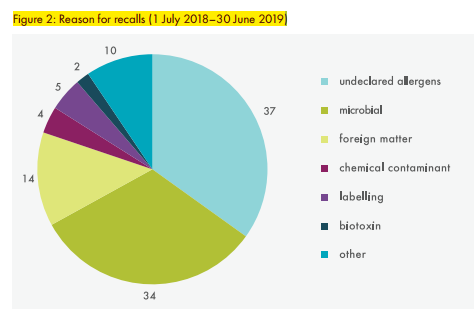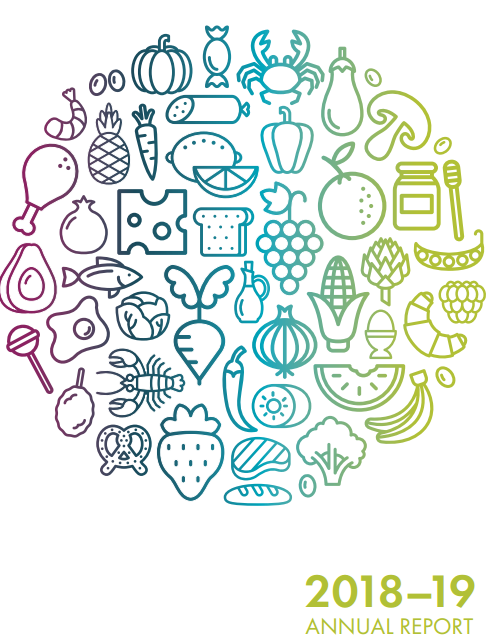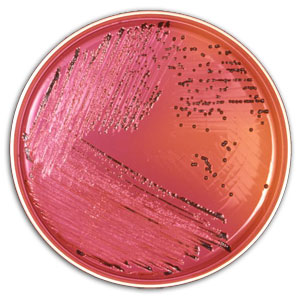The FDA announced on its website that Wawona Frozen Foods recalled packages of frozen raspberries and frozen berry mixes containing raspberries sold at Aldi Grocery Stores and frozen raspberries sold at Raley’s Family of Fine Stores because they have the potential to be contaminated with Hepatitis A. The recall is due to a positive test result obtained as part of a government sampling program. There have been no illnesses associated with this voluntary and precautionary recall to date. The frozen raspberries and frozen berry mixes containing raspberries were distributed throughout stores in Aldi and Raley’s Family of Fine store chains. The recalled frozen raspberries were imported from Chile. @ https://www.fda.gov/safety/recalls-market-withdrawals-safety-alerts/wawona-frozen-food-voluntarily-recalls-frozen-raspberries-due-possible-health-risk?utm_campaign=Wawona%20Frozen%20Food%20Voluntarily%20Recalls%20Frozen%20Raspberries%20Due%20to%20Possible%20Health%20Risk&utm_medium=email&utm_source=Eloqua
Wawona Frozen Foods is voluntarily recalling packages of frozen raspberries and frozen berry mixes containing raspberries sold at Aldi Grocery Stores and frozen raspberries sold at Raley’s Family of Fine Stores because they have the potential to be contaminated with Hepatitis A.
ruth
In its 2018-2019 Annual report, Food Standards Australia New Zealand (FSANZ) reported showed a record high of 106 incidents of recalls. This is the highest number of recalls in 12 months. The recalls were mainly due to undeclared allergens (35%), microbial contamination (32%), and foreign material (13%). This number of recalls compares to 81 recalls in the same period from 2017 to 2018 and 61 from 2016 to 2017. A strawberry tampering incident in September of 2018 was one of the most significant events of the year, involving sewing needles inserted into strawberries. FSANZ identified four cross-contamination causes of allergen-related recalls, including lack of skills and knowledge of labeling requirements, supplier verification, packaging errors and accidental cross-contamination. During 2018-19 fourteen issues were referred to the network, including Listeria in frozen vegetables from Belgium, Salmonella Enteritidis in eggs, and the strawberry tampering incident. @ https://www.foodstandards.gov.au/publications/annualreport201819/Pages/default.aspx
ruth
The FDA announced on its website that North Bay Produce, Inc. of Traverse City, Michigan recalled 2,297 cases and two bulk bins of fresh apples due to the potential to be contaminated with Listeria monocytogenes. The recalled varieties include McIntosh, Honeycrisp, Jonathan, Fuji, Jonamac, and Red Delicious apples. Recalled apples were sold in plastic bags under the brands; Great Lakes, North Bay Produce Pure Michigan as well as unbranded in clear plastic tote bags, white paper tote bags, and individually from retailers display trays. The recalled apples were shipped between October 16th, 2019, and October 21st, 2019 from one North Bay facility to wholesalers, retailers, and brokers in Florida, Illinois, Kentucky, Louisiana, Michigan, North Carolina, Texas, and Wisconsin. The recall was initiated as a result of a finished product test that indicated the presence of L. monocytogenes. Upon notification, North Bay Produce immediately ceased the production and distribution product from the identified facility and continues our investigation as to what caused the issue in cooperation with the FDA. @ https://www.fda.gov/safety/recalls-market-withdrawals-safety-alerts/north-bay-produce-voluntarily-recalls-fresh-apples-because-possible-health-risk
North Bay Produce, Inc. of Traverse City, Michigan is voluntarily recalling 2,297 cases and 2 bulk bins of fresh apples due to the potential to be contaminated with Listeria monocytogenes.
Doug-B
The Public Health Agency of Canada (PHAC) in collaboration with provincial public health partners, the Canadian Food Inspection Agency (CFIA) and Health Canada to are investigating an outbreak of Salmonella Litchfield infections in Ontario (10 cases) and Quebec (2 cases). The outbreak is related to Filicetti brand Italian Style mild, dry, cured sausage. The implicated product was recalled earlier this month by Longo’s and appeared to be ongoing, as recent illnesses continue to be reported to PHAC. The first recall was issued on October 16, 2019, following this recall additional laboratory analysis has determined that both the recalled Filicetti brand sausage product and the ill individuals in Ontario and Quebec have the same genetic strain of Salmonella. One individual was hospitalized. No deaths have been reported. The collaborative outbreak investigation was initiated because of an increase in Salmonella Litchfield illnesses being reported. This is a rare strain of Salmonella not commonly seen in Canada. @ https://www.canada.ca/en/public-health/services/public-health-notices/2019/outbreak-salmonella-sausages.html
The Public Health Agency of Canada is collaborating with provincial public health partners, the Canadian Food Inspection Agency and Health Canada to investigate an outbreak of Salmonella infections.





